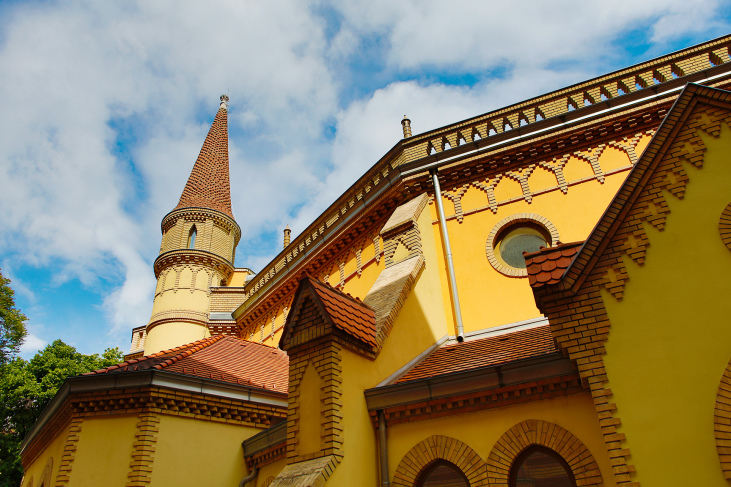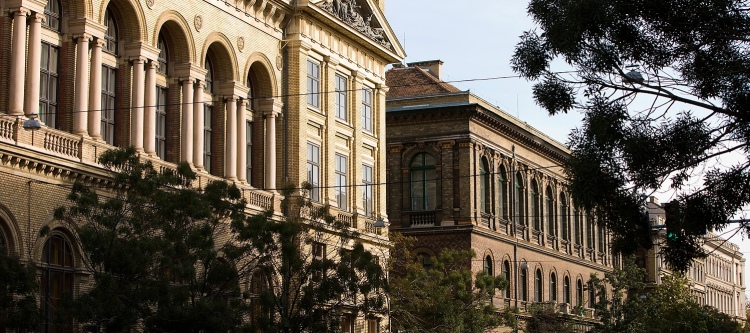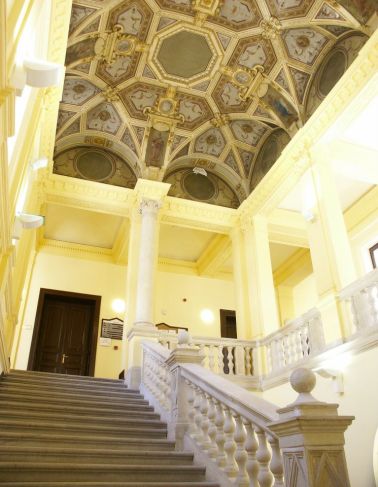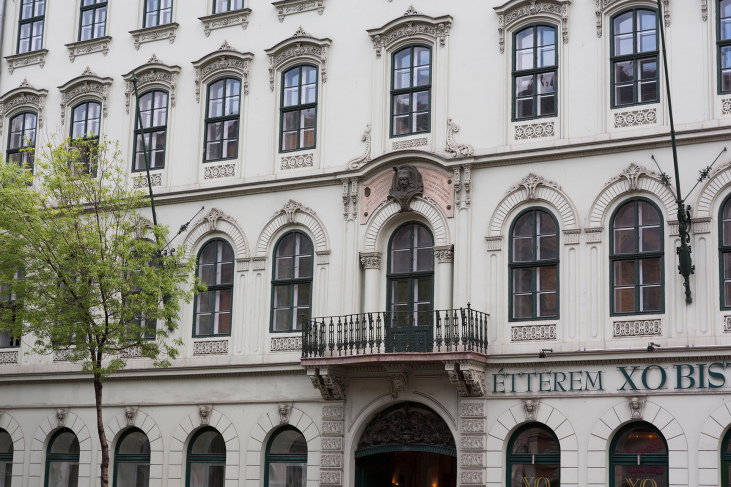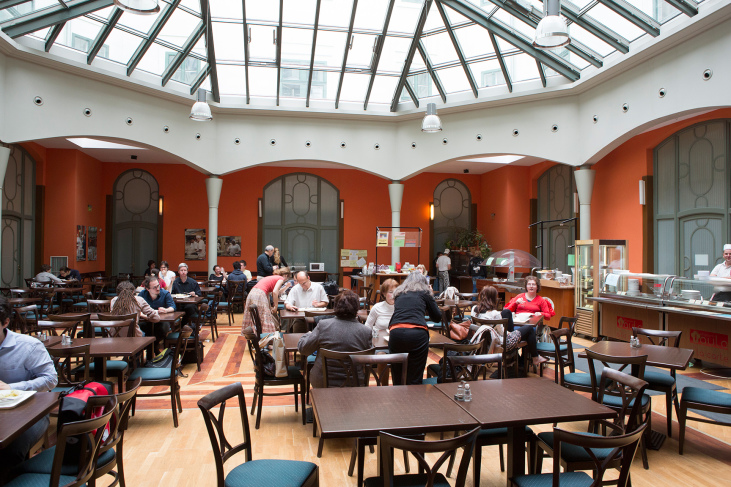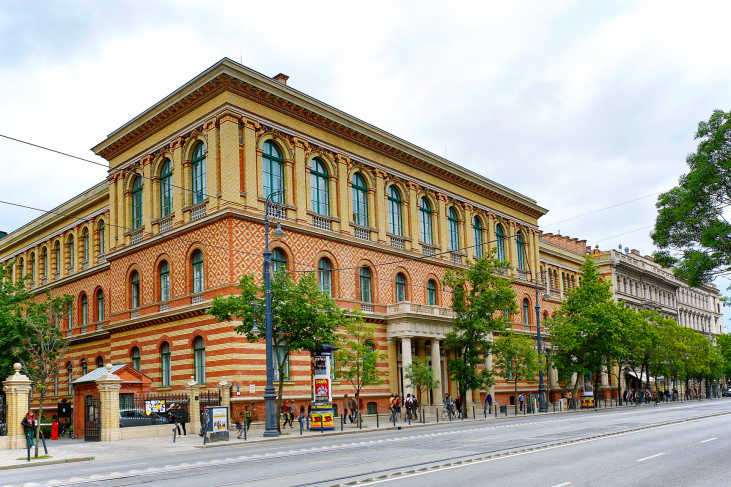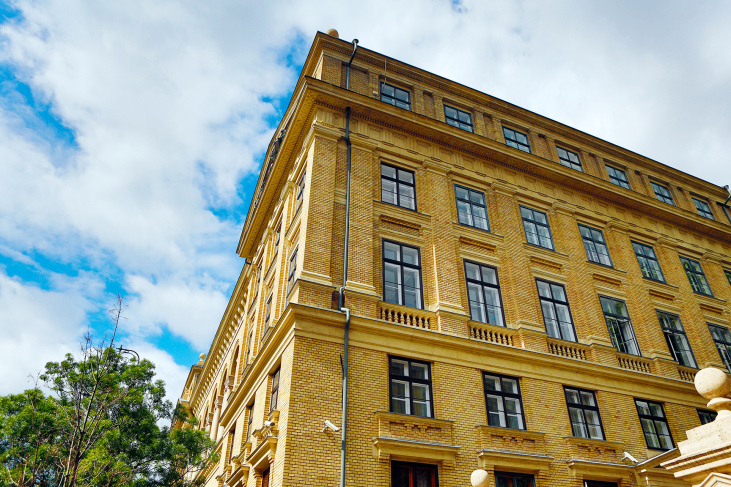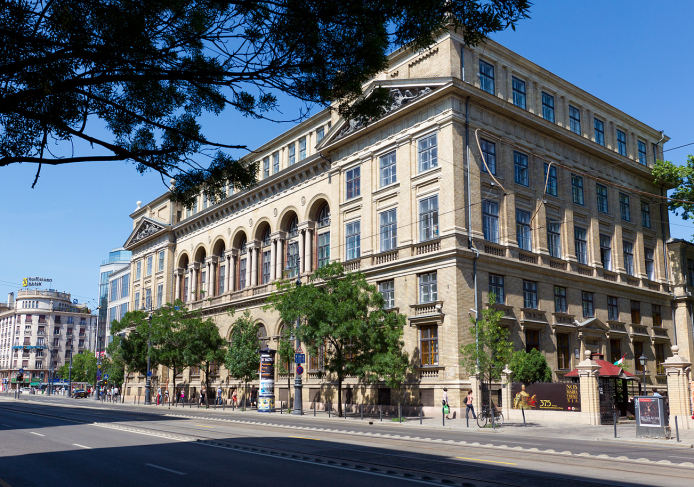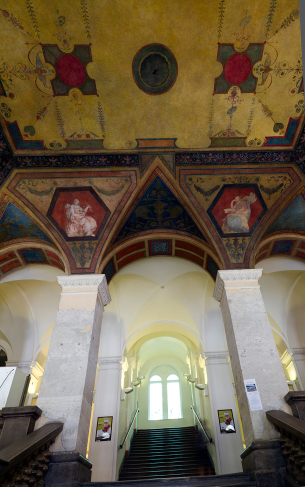Semiotics MA
Semiotics MA
Semiotician
Degree program
Master
FF/723-4/2012.
English
4 semesters (2 years)
120
2
30
Semiotics is an ancient discipline with a long history, which has gained a firm theoretical foundation during the 19th century and an ever-growing significance over the last 50 years. This discipline is now in a period of very intensive, concentrated research and self-identification on the map of contemporary science.
The interdisciplinary Semiotics MA program at ELTE trains students to become well-trained specialists in semiotics of culture with a global overview of the various fields of humanities: literary studies, linguistics, philosophy, visual arts and general art studies – including approaches to the fine arts, films, theatre and music – and also the most contemporary methods of research synthetized from a semiotic methodological point of view. At the same time, choosing the specific field for degree thesis students can gain specialized knowledge in one subfield of the semiotics of humanities (e.g., the literary, visual, musical, theoretical semiotics, and ethnosemiotics). The program is designed to be flexible to motivate students to find the best Hungarian specialists in the given field and assist them to become involved in international research and dialogues with foreign scholars and lecturers. The curriculum consists of courses on the history and theory of semiotics; language, communication, texts and translation; theory of meaning, logic, argumentation; field studies of cultural, national and special semiotic systems; various forms of applied semiotics and semiotic pragmatics in general. The program also puts emphasis on the preparation of students for PhD studies to plan their research career.
This program is recommended to applicants who wish to acquire skills for analysing processes of communication (mediation, translation) in culture and the results of these processes (texts, artefacts, events etc.) arising from the past and in the digital age, in a great variety of media and discourse representations to be described and evaluated as they constantly change through creative cultural interactivity.
This program enables students to become versatile experts on culture, having substantial knowledge and competence in understanding, analysing and influencing both general and specific cultural phenomena and the various forms of interaction and pragmatic exchange, and innovative system construction in general.
- an interdisciplinary orientation within the humanities;
- the application of the valuable research and methodological results of classical semiotics linking them to the most recent scholarly results in the discipline;
- equilibrium in teaching semiotic theory and its implications in applied semiotics;
- flexibility in encouraging students to find their own subfield by enabling their specialization (free option possibilities built into the curriculum);
- international context for research and education;
- offering perspectives for students for doctoral studies in directions not restricted to semiotics.
Find the detailed structure of the program on the site of the Faculty.
The labour market for specialists with an MA degree in semiotics includes job opportunities for experts who are expected to have the skills of
- understanding current cultural movements;
- grasping and describing the developmental logic in contemporary arts and the various forms of intercultural communication both within social interaction and national and international cultural texts;
- interpreting and describing different media and message transfer processes;
- analysing conflict, argumentation systems and philosophical discourse in any field which can be interpreted from the point of view of sign system constructions;
- building models, typologies and create system-descriptions.
Employment may also be found in the fields linked to applied semiotics (e.g. sign system translation activities; analysis of behaviour symptoms in the work-place; symptom-interpretation in various social or work groups; activities for handling situations in spheres where special sign systems are involved, etc.).
Researchers at universities, in museums; copywriters, journalists, cultural critics; scriptwriters for videogames; enterprisers; translators; IT specialists; PR specialists.
2,500 EUR
2,500 EUR
The application fee is discounted for Early Bird applicants: EUR 100 (non-refundable) between 01/11/2024 - 30/11/2024 and between 01/02/2025 - 31/03/2025; The regular application fee is: EUR 150 (non-refundable) between 01/04/2025-31/05/2025
The application fee is discounted for Early Bird applicants: EUR 100 (non-refundable) between 01/11/2024 - 30/11/2024 and between 01/02/2025 - 31/03/2025; The regular application fee is: EUR 150 (non-refundable) between 01/04/2025-31/05/2025
100 EUR (Entrance exam fee)
100 EUR (Entrance exam fee)
2,500 EUR
The application fee is discounted for Early Bird applicants: EUR 100 (non-refundable) between 01/11/2024 - 30/11/2024 and between 01/02/2025 - 31/03/2025; The regular application fee is: EUR 150 (non-refundable) between 01/04/2025-31/05/2025
100 EUR (Entrance exam fee)
Yes
01, Sep, 2025
31, May, 2025
No
Entry requirements
Applicants must hold a university bachelor’s degree (or an equivalent college degree) in the fields listed below. Full credit acknowledgement is only given for a bachelor’s degree in the field of Arts and Humanities.
In the case of diplomas from social sciences, informatics, law, natural sciences, contemporary and applied arts, each degree will be considered individually. The applicant must have 50 credits (but at least 20 credits to enter the programme) in the fields of aesthetics, philosophy, historical study, linguistics, literature, cultural and art studies.
Transcripts from your bachelor's degree as well as course descriptions will be requested.
The educational and outcome requirements are defined by the Ministry of Human Capacities Regulation No. 18/2016. VIII. 5. The details of the application and admission process are defined by the Organisational and Operational Regulations of ELTE.
Language requirements
Your knowledge of English must be at a good level in reading, listening and speaking. English is the working language of the MA program (C1 level preferred). The language knowledge is assessed and evaluated during the interview.
|
Document |
Comment |
|---|---|
|
- |
|
|
Secondary school certificate (graduation certificate) |
Notarized copy only on request. |
|
Bachelor-level degree |
An official copy of your completed Bachelor degree |
|
Master-level degree |
If you already have one. |
|
Transcript of records |
|
|
CV |
In English, in MS Word format with one low resolution photo |
|
Motivation letter |
A maximum of 500 words. |
|
Essay/Other writing |
|
|
Copy of the main pages of the passport |
Scanned, in colour all personal details and expiry date must be shown. Passport must be valid. |
|
Copy of application fee transfer |
|
|
Copy of the Entrance exam fee transfer |
|
|
Other: Sample(s) of previous (academic) work or writing |
1) Some sample pages of the BA diploma work in English, or a 1-2-page summary of it in English. 2) A sample of any other writing (essay, project plan, seminar paper, artistic creation, a new work plan, 3) A list of the 10 most outstanding intellectual/cultural experiences of his/her life (reading and/or, |
Optional documents for admissions
- Research Proposal
Please consult with the coordinating department for more information - Language certificate
Official test result or certificate (if available); see program specific proficiency requirements. - Letter of Reference
Also called "Letter of recommendation." From a former instructor and/or employer.
Application deadlines
The deadline for application means the deadline of submission of the full and complete application package in the online system.
Period 1 (with Early Bird discount): 01/11-30/11/2024 23:59 (CET)
Period 2 (with Early Bird discount): 01/02-31/03/2025 23:59 (CET)
Period 3: 01/04-31/05/2025 23:59 (CET)
The application procedure includes 3 periods in order to give the applicants the freedom to submit their application when it’s most suitable for them. The applicants of each period have the same chance to get admittance for the programme. However, please note, that the Faculty of Humanities ELTE reserves the right to cancel the entrance periods in case the number of the admitted applicants reaches the limit during the previous entrance periods.
Procedure of the application
The application starts in the online application system. Students need to register in the system, fill in the online application form, upload the required documents and follow the instructions during the application process.
Applications will only be processed if the application fee (100 EUR or 150 EUR depending on application period; non-refundable) has been transferred to the Faculty’s bank account.
For further information and details about transferring the application fee please visit our Faculty’s website: http://btk.elte.hu/prospective-students-financial-issues
BANK ACCOUNT DETAILS OF OUR UNIVERSITY
IBAN Bank Account: HU 03 1003 2000 0142 6201 0000 0000
BIC/SWIFT code: HUSTHUHB
Name of the University: EÖTVÖS LORÁND UNIVERSITY, ELTE BTK
Address: 1088 Budapest, Múzeum krt. 4/a, Hungary
Name of the Bank: Hungarian State Treasury Ltd. (Magyar Államkincstár)
Address of the Bank: 1139 Budapest, Váci út 71.
PLEASE DO NOT MISS TO ADD IN THE MESSAGE SECTION:
Name of applicant
AY (for example: 2025/26/1)
The University’s sub-account number: AC9201/04
Entrance examination and selection process
When the university receives the full application package and it is checked by the Department of International Affairs an entrance exam date option will be sent no later than the application deadline for the relevant period. Please, check your messages in the application system, and the e-mail address that is linked to the account regularly. The applications are examined by the Admission Board no later than after each application period and applicants are notified of the outcome of the selection in the online application system after the decision is official. Admission letters are sent out in the online application system within a few days.
Procedure of the entrance examination
The entrance exam contains a discussion about the motivation of the applicant. Successful applicants must have a good command of English to pass the entrance exam. The format of the entrance exam is an online interview. Ranking is based on the overall evaluation of academic excellence (based on the submitted documents) and the results of the entrance exam.
Prof. Dr. Katalin KROÓ
Department of Russian Language and Literature
Admission
Department of International Affairs
E-mail: admission@btk.elte.hu
Address: 1088 Budapest, Múzeum krt. 4.
More information
Website
Semiotics MA
Semiotics MA
Take a dive and check out what Hungary’s nr. 1. Faculty of Humanities can offer you. More info: https://btk.elte.hu/en/graduate-schools
Take a dive and check out what Hungary’s nr. 1. Faculty of Humanities can offer you. More info: https://btk.elte.hu/en/graduate-schools
0
/
0
















0
/
0

